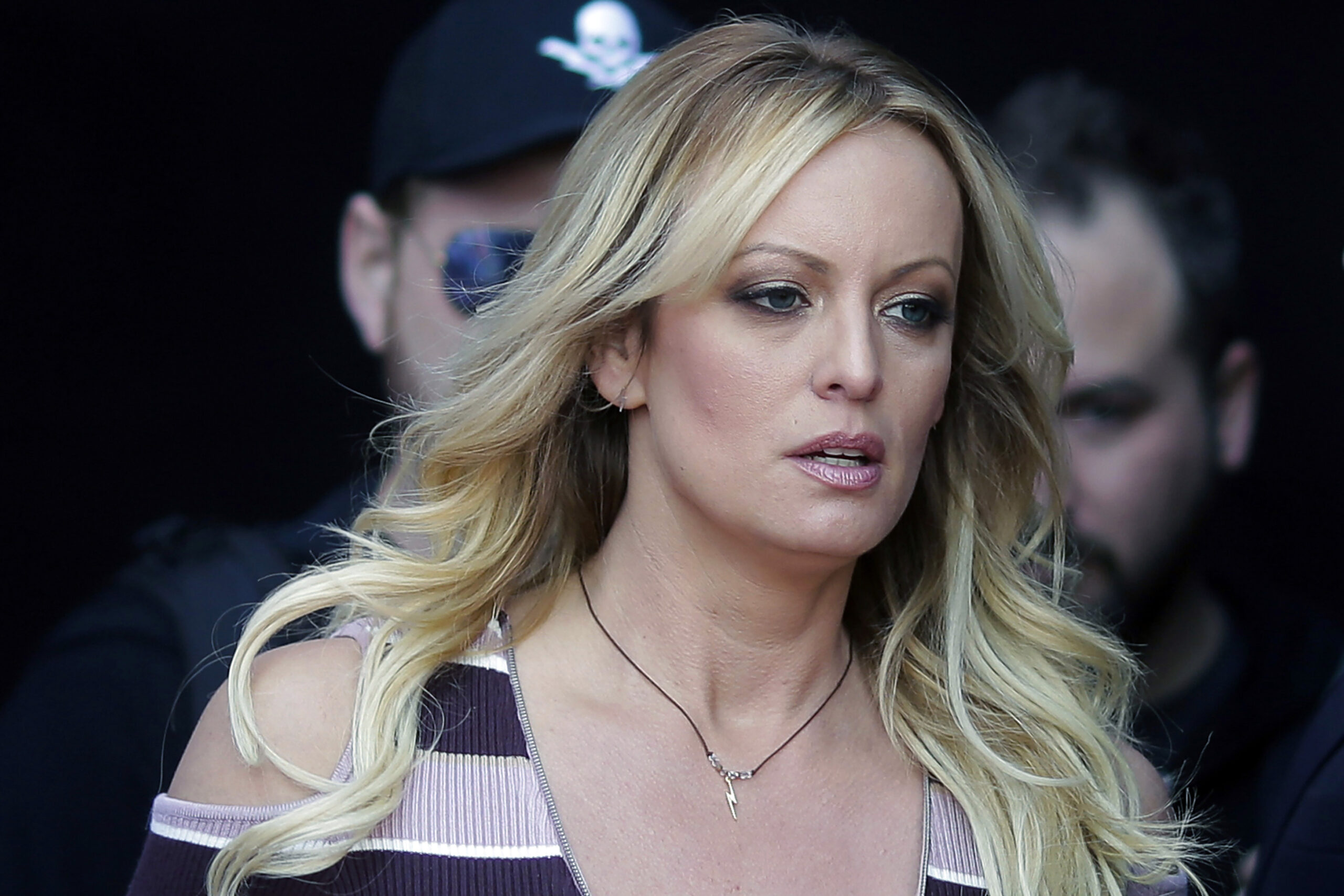

A lawyer testified in former President Donald Trump‘s trial in New York on Tuesday about his experiences negotiating deals in 2016 to silence two women who claimed they had affairs with Trump.
Keith Davidson, a Los Angeles-based attorney known for his work with nondisclosure agreements, spoke about his frustrating interactions with Michael Cohen, Trump’s former attorney, as well as the tense conversations he had while working with tabloid company American Media, Inc., which owns the National Enquirer, according to live details of Davidson’s testimony reported by CNN.
Prosecutors have alleged that AMI was involved in a scheme with Trump and Cohen to bury negative stories about him in 2016 to help Trump’s election prospects.
Davidson was involved in negotiating with AMI and Cohen over payments to kill stories from porn star Stormy Daniels and former Playboy model Karen McDougal about their alleged romantic trysts with Trump in the lead-up to Election Day.
Davidson testified that he first interacted with Cohen in 2011 when he sent a warning letter to a blog featuring claims about Daniels’s alleged relations with Trump. Davidson said Cohen had an aggressive demeanor.
Davidson said he was “met with a hostile barrage of insults and insinuations and allegations, and that went on for quite a while” when he spoke to Cohen on the phone, adding that Cohen was not accusing him of anything.
“He was just screaming,” Davidson added, prompting Trump’s attorney Todd Blanche to smile during Davidson’s testimony.
Cohen, Manhattan District Attorney Alvin Bragg’s star witness, would later plead guilty to several charges in 2018 that included arranging hush money payments to Daniels and McDougal. Trump’s attorneys have indicated that they plan to highlight that Cohen has also pleaded guilty to perjury-related crimes, including lying to a bank and to Congress, and that he is therefore untrustworthy.
Davidson testified that he was forced to deal with Cohen once again in 2016 after AMI decided it did not want to publish a story about Daniels. The decision led Cohen to pay Daniels $130,000 himself to prevent her from going public with her claims about Trump.
“In essence, Michael Cohen stepped into AMI’s shoes,” Davidson said.
Davidson testified about how he and Daniels’s manager at the time joked about how negotiating a deal for Daniels would be easy aside from the need to correspond with Cohen.
“All you have to do is talk to that a**hole Cohen,” Davidson recalled Daniels’s manager telling him.
Davidson also recalled how Cohen was late paying Daniels, leading Davidson to tell him at the time, “I don’t believe a word really that you say.”
“Goddammit, what do you expect me to do? My guy [Trump] is in five different states today,” Cohen replied, according to evidence presented at the trial.
“I think you can tell by these emails I was sending him there was a great level of frustration by me and my client,” Davidson told the court.
McDougal was paid directly by AMI rather than by Cohen despite Cohen’s tangential interest in ensuring McDougal’s claims about Trump did not become public before Election Day.
Davidson took her on as a client and agreed to help her negotiate with media outlets in June 2016, he testified.
Prosecutors presented evidence of Davidson texting National Enquirer editor Dylan Howard at the time, “I have a blockbuster trump story.”
Davidson also testified about how he was pitching a deal to ABC at the same time as the National Enquirer.
“At the time, as is often the case with negotiations, I was trying to play two entities off of each other,” which, Davidson said, would “create a sense of urgency, if you will.”
Prosecutors have described AMI’s practice of paying for rights to stories and then opting not to publish the stories as a “catch-and-kill” scheme and that, in Trump’s case, amounted to an illegal conspiracy to swing the 2016 election in Trump’s favor. Defense attorneys have said that nothing about suppressing the unflattering stories was illegal and that AMI helped many high-profile figures in the same manner, not just Trump.
Davidson spoke about the tense dealings with Howard, the National Enquirer editor, saying they became “frustrating” and that, to his dismay, he had been advised to call Cohen.
“I didn’t particularly like dealing with him, and that’s why I was trying like hell to avoid talking to him,” Davidson testified of Cohen.
AMI eventually agreed to pay McDougal $150,000, and Davidson testified that he received 45% of those funds.
Asked by prosecutors about why the National Enquirer did not run the story, Davidson testified that he was told by the tabloid that “they were trying to build Karen into a brand.”
“And second was more of an unspoken understanding that there was a close affiliation between David Pecker and Donald Trump and that AMI would not run this story or any story related to Karen and Donald Trump because it would tend to hurt Donald Trump,” Davidson said.
Davidson has not finished testifying, and he is expected to retake the stand when court resumes later this week.
Trump was present for the trial and accompanied for the first time by one of his family members, his son Eric, according to reports from the courtroom.
CLICK HERE TO READ MORE FROM THE WASHINGTON EXAMINER
At the start of Tuesday’s proceedings, Merchan also announced that he found Trump in contempt of court for nine posts he made on social media that he said violated a gag order in the case. Merchan fined Trump $1,000 per post, but he lamented that state law prevented him from fining Trump more and threatened jail for future violations.
Merchan does not hold trial on Wednesdays, but on Thursday, the day will begin with a hearing on four other social media posts of Trump’s that prosecutors claim violated the gag order.






